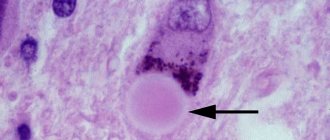One of the most important parts of living a long and happy life with Parkinson's disease is eating a balanced diet. However, it can be difficult to adhere to the recommendations of nutritionists, since this disease negatively affects the digestive functions of the body. This manifests itself in the fact that patients experience a decrease in appetite, taste, and smell; in addition, they are bothered by constipation, weight loss and nausea. The important thing here is to be persistent and take your food choices seriously. We will talk about how to eat for a sick person in this article.
Basic recommendations
The main feature of nutrition in Parkinson's is balance. One-half of the diet consists of vegetables and fruits. The other part should include carbohydrates and proteins. Cereals that contain a lot of vitamin B are ideal for nutrition. Meat and legumes are rich in protein, so they are also important.
Fast food, snacks, processed foods and fried foods should be removed from your diet. Food should be salted after cooking. Steam, oven and slow cooker are suitable for cooking. It is important that the food is prepared at home.
You should eat food at least 4-5 times a day; it is best to chop it up and distribute it into small portions.
It is also important to properly prepare the place where the patient eats. It is best to use special utensils such as weighted utensils, plastic mugs or straws. You can place a rubber mat on the table under the plate.
A gentle diet for intestinal diseases: menu for the week
A gentle diet for gastrointestinal diseases is also indicated for intestinal dysfunction. It is usually prescribed for a long period - from 6 months to 2 years. The menu for a person suffering from intestinal diseases can be quite varied, the choice of allowed dishes is large, it all depends on the preferences of the patient.
A gentle diet for the intestines is based on the principles of proper nutrition:
- In the process of cooking, you need to completely avoid frying dishes; everything is cooked exclusively in a double boiler, slow cooker, oven, or stewed over low heat.
- The consumption of fatty meat, fish, poultry and sausages is prohibited. To prepare dishes during a therapeutic diet for intestinal diseases, you can use lean meat - veal, beef, rabbit, fish.
- Dishes for this dietary table should be prepared without oil and fat.
The range of dishes for intestinal diseases is quite wide; as liquid food you can eat a variety of cereal soups - rice, oatmeal, wheat, semolina. They should have a slimy consistency with well-cooked grains. Using vegetables - carrots, celery, potatoes, pumpkin, zucchini, cauliflower, you can prepare pureed soups of a uniform consistency. For intestinal diseases, nutritionists recommend that their patients consume milk-based cereal soups.
An excellent option for an afternoon snack or dinner would be semolina porridge with a liquid consistency, cooked in milk with the addition of water. To improve the taste, you can add dried fruits or berries to the dish.
During the diet, it is prohibited to eat soups with legumes and peas, onion and cabbage first courses. Food should not be cold or hot. For intestinal diseases, you can use this option of a gentle diet menu for a week:
Monday:
- Half an hour after waking up, eat milk oatmeal, low-fat cottage cheese with jam, and drink a cup of green tea.
- The 2nd breakfast consists of a baked apple and a glass of jelly.
- For lunch, you can eat a portion of vegetable puree soup with chicken, boiled rice with a steam cutlet, drink a cup of weak black tea with cookies.
- For an afternoon snack - rosehip decoction and oatmeal cookies.
- Dine on a steamed omelette, buckwheat porridge on water, and berry jelly.
Tuesday:
- First breakfast: 200 grams of low-fat cottage cheese casserole with apples, compote.
- Second breakfast: a serving of rice porridge with milk, green tea.
- Lunch: soup with meatballs, buckwheat porridge, compote.
- For an afternoon snack, drink a glass of jelly with cookies, eat a fresh apple without peel.
- Dinner: 150 g of meat casserole, mashed potatoes, black tea.
Wednesday:
- First breakfast: milk soup with buckwheat, diet cottage cheese, green tea.
- For second breakfast: milk jelly with crackers, fruit.
- You can have lunch with pureed rice soup, steamed fish cutlet and oatmeal, and drink a cup of weak black tea.
- Afternoon snack: cottage cheese and pumpkin casserole, fresh apple.
- Dinner: krupenik and veal cutlets, berry jelly with breadcrumbs.
From the editor: How to quickly and effectively increase your concentration
Thursday:
- 1st breakfast: oatmeal, jelly with cookies.
- Lunch: rice milk soup, baked apple, green tea.
- Lunch: fish soup with rice, mashed potatoes with steamed cutlets, compote.
- Afternoon snack: low-fat cottage cheese with honey.
- Dinner: meat casserole, buckwheat porridge, fruit jelly.
Friday:
- 1st breakfast: low-fat cottage cheese with honey, baked apple.
- Lunch: fruit salad, milk rice porridge.
- Lunch: soup with meat, rice porridge with steamed cutlets, tea.
- Afternoon snack: pumpkin casserole and tea.
- Dinner: vegetables with minced meat, baked in the oven, berry jelly and cookies.
Saturday:
- 1st breakfast – soup with rice with milk, dried fruit compote.
- For lunch - oatmeal casserole, jelly.
- Have lunch with a vegetable casserole with meat, rice soup with meatballs.
- Afternoon snack – cottage cheese casserole, milk jelly.
- For dinner - rice porridge, jelly.
Sunday:
- First breakfast: milk rice porridge with fruit, jelly with breadcrumbs.
- 2nd breakfast: baked apple, green tea;
- Lunch: vegetable puree soup with chicken, buckwheat porridge with meat, fruit compote.
- Afternoon snack: milk jelly with oatmeal cookies.
- Dinner: vegetable casserole, rice porridge, fruit jelly.
Every day before going to bed, you can drink a glass of kefir at room temperature.
Diet
It is important to have a balanced diet. Medicines are taken 30-40 minutes before meals. An important component of breakfast are carbohydrates, as they have a beneficial effect on the absorption of drugs, while fats and proteins, on the contrary, interfere with drugs and interfere with absorption.
Diet principles:
- At least 4-5 meals;
- Meals consist of 3 courses and 2-3 snacks;
- Products should be easy to digest;
- The last dose should be 3-4 hours before bedtime;
- The volume of food is no more than 200-250 ml.
Authorized Products
- The weekly diet should consist of fish and seafood dishes. This could be tuna, mackerel, cod, sardines, saury, flounder. Sea kale is useful, which can be finely chopped and added to salads or stewed vegetables.
- If possible, use fresh vegetables. If eating them is difficult, switch to stewed or boiled and crushed. Restrictions on coarse vegetables - radishes, radishes, turnips. If tolerated well, legumes should be a mandatory component of the diet. They can be included in your diet daily. Green peas and green beans do not cause bloating. Beans and spinach have been proven to contain natural dopamine. Beans can be eaten as grain or green beans.
- Fruits and berries, as they contain fiber and pectins (especially citrus fruits, apples, viburnum, grapes, cranberries, dried dogwood berries). Pectins improve intestinal motility, reduce cholesterol, and cleanse the body of harmful substances (radioactive substances, pesticides, toxic metals).
- Bran, sesame seeds, fenugreek and flax are additional sources of fiber and healthy oils. They should be administered additionally if there is constipation.
- Vegetable soups (cabbage soup, beetroot soup, borscht) with vegetable broth. Vegetables are well ground when swallowing is difficult. Cereal soups are also good when boiled or pureed. You can prepare puree soups into which pureed meat or fish is added.
- Choose low-fat varieties of meat and poultry (give preference to turkey or chicken). It is enough to eat meat dishes once a week. Meat dishes should be cooked boiled and then chopped. You can cook steamed cutlets, pates and airy meat soufflé.
- Rye and bran bread. It may be easier to consume it in the form of soaked crackers.
- Milk, cottage cheese, fermented milk drinks low in fat and limited. Every day you can include up to 2 whole eggs, from which you can prepare omelettes (steamed and baked).
- Any cereal, but it is better to exclude pearl barley, as it is the coarsest cereal. Porridge is cooked in water and with the addition of milk. Dry and crumbly porridges are difficult to swallow, so you need to prepare “smear porridges” - boil well and add water to a semi-viscous consistency.
- To season ready-made dishes, use unrefined vegetable oils (olive, sesame, corn, flaxseed).
- All nuts and seeds contain healthy monounsaturated fats. You need to eat 30-50 g daily, but they are difficult to eat in their natural form, so you can grind them in a blender, add honey and get a tasty and healthy dessert. It’s a good idea to add chopped prunes and dried apricots here (especially if you are prone to constipation).
- Rosehip decoction, herbal teas, juices, still mineral water (up to 2 liters per day). Anti-stress and neurotrophic effects are exerted by herbal decoctions of catnip, skullcap, passionflower, and valerian root.
| Proteins, g | Fats, g | Carbohydrates, g | Calories, kcal | |
| greenery | 2,6 | 0,4 | 5,2 | 36 |
| eggplant | 1,2 | 0,1 | 4,5 | 24 |
| beans | 6,0 | 0,1 | 8,5 | 57 |
| zucchini | 0,6 | 0,3 | 4,6 | 24 |
| cabbage | 1,8 | 0,1 | 4,7 | 27 |
| broccoli | 3,0 | 0,4 | 5,2 | 28 |
| boiled cauliflower | 1,8 | 0,3 | 4,0 | 29 |
| bulb onions | 1,4 | 0,0 | 10,4 | 41 |
| carrot | 1,3 | 0,1 | 6,9 | 32 |
| cucumbers | 0,8 | 0,1 | 2,8 | 15 |
| salad pepper | 1,3 | 0,0 | 5,3 | 27 |
| salad | 1,2 | 0,3 | 1,3 | 12 |
| beet | 1,5 | 0,1 | 8,8 | 40 |
| celery | 0,9 | 0,1 | 2,1 | 12 |
| soybeans | 34,9 | 17,3 | 17,3 | 381 |
| asparagus | 1,9 | 0,1 | 3,1 | 20 |
| tomatoes | 0,6 | 0,2 | 4,2 | 20 |
| Jerusalem artichoke | 2,1 | 0,1 | 12,8 | 61 |
| pumpkin | 1,3 | 0,3 | 7,7 | 28 |
| beans | 7,8 | 0,5 | 21,5 | 123 |
| garlic | 6,5 | 0,5 | 29,9 | 143 |
| lentils | 24,0 | 1,5 | 42,7 | 284 |
| avocado | 2,0 | 20,0 | 7,4 | 208 |
| oranges | 0,9 | 0,2 | 8,1 | 36 |
| pomegranate | 0,9 | 0,0 | 13,9 | 52 |
| grapefruit | 0,7 | 0,2 | 6,5 | 29 |
| pears | 0,4 | 0,3 | 10,9 | 42 |
| kiwi | 1,0 | 0,6 | 10,3 | 48 |
| lemons | 0,9 | 0,1 | 3,0 | 16 |
| mango | 0,5 | 0,3 | 11,5 | 67 |
| tangerines | 0,8 | 0,2 | 7,5 | 33 |
| nectarine | 0,9 | 0,2 | 11,8 | 48 |
| peaches | 0,9 | 0,1 | 11,3 | 46 |
| apples | 0,4 | 0,4 | 9,8 | 47 |
| gooseberry | 0,7 | 0,2 | 12,0 | 43 |
| Red currants | 0,6 | 0,2 | 7,7 | 43 |
| black currant | 1,0 | 0,4 | 7,3 | 44 |
| nuts | 15,0 | 40,0 | 20,0 | 500 |
| cashew | 25,7 | 54,1 | 13,2 | 643 |
| sesame | 19,4 | 48,7 | 12,2 | 565 |
| flax seeds | 18,3 | 42,2 | 28,9 | 534 |
| fenugreek seeds | 23,0 | 6,4 | 58,3 | 323 |
| sunflower seeds | 20,7 | 52,9 | 3,4 | 578 |
| buckwheat (kernel) | 12,6 | 3,3 | 62,1 | 313 |
| oat groats | 12,3 | 6,1 | 59,5 | 342 |
| cereals | 11,9 | 7,2 | 69,3 | 366 |
| millet cereal | 11,5 | 3,3 | 69,3 | 348 |
| barley grits | 10,4 | 1,3 | 66,3 | 324 |
| honey | 0,8 | 0,0 | 81,5 | 329 |
| skim milk | 2,0 | 0,1 | 4,8 | 31 |
| natural yogurt 2% | 4,3 | 2,0 | 6,2 | 60 |
| cottage cheese 0.6% (low fat) | 18,0 | 0,6 | 1,8 | 88 |
| curd tofu | 8,1 | 4,2 | 0,6 | 73 |
| beef | 18,9 | 19,4 | 0,0 | 187 |
| rabbit | 21,0 | 8,0 | 0,0 | 156 |
| boiled diet sausage | 12,1 | 13,5 | 0,0 | 170 |
| chicken fillet | 23,1 | 1,2 | 0,0 | 110 |
| turkey | 19,2 | 0,7 | 0,0 | 84 |
| fish | 18,5 | 4,9 | 0,0 | 136 |
| squid | 21,2 | 2,8 | 2,0 | 122 |
| mussels | 9,1 | 1,5 | 0,0 | 50 |
| seaweed | 0,8 | 5,1 | 0,0 | 49 |
| butter | 0,5 | 82,5 | 0,8 | 748 |
| linseed oil | 0,0 | 99,8 | 0,0 | 898 |
| olive oil | 0,0 | 99,8 | 0,0 | 898 |
| sunflower oil | 0,0 | 99,9 | 0,0 | 899 |
| mineral water | 0,0 | 0,0 | 0,0 | — |
| green tea | 0,0 | 0,0 | 0,0 | — |
| * data is per 100 g of product |
Editorial: Charcot-Marie-Tooth disease of the brain and spinal cord
Cooking method and portion size
Following proper cooking methods and doctor-recommended diets will help with Parkinson's disease. It is important to preserve vitamins in food, so it is best to eat raw fruits and vegetables.
The best cooking methods are boiling and steaming, which preserve the nutrients in the food. A slow cooker is suitable for stewing.
Due to problems with chewing, it is best to eat small portions that do not tire the patient and make eating more enjoyable.
Types of diets
For this disease the following are used:
— Mediterranean is an excellent option, as it provides the necessary amount of fiber and is suitable in terms of calories. In addition, it is optimal prevention for high cholesterol levels and chronic arterial diseases.
- Gluten-free - its effect on the disease is very controversial, since cereals containing the required amount of gluten are removed, which means that the consumption of vitamin B, which is important for a patient with Parkinson's, is reduced.
- Ketogenic - a diet in which the patient consumes few carbohydrates, a large amount of fat and an average amount of protein. According to researchers, this diet helps relieve some symptoms, such as tremors and muscle failure. But this type of diet is dangerous because it puts high pressure on the kidneys, it does not contain enough vitamins, and it causes constipation.
Pros and cons of the diet
The Mediterranean type of diet has no contraindications and is therefore recommended for all patients.
Pros of this diet:
- variety, balance;
- easily tolerated by patients;
- can be used for a long time;
- restores metabolism, improves well-being.
There are practically no downsides, with the exception of significant financial costs for seafood and fresh vegetables in the winter season.
The ketogenic diet has more contraindications: diabetes, heart disease, kidney disease.
The advantages include high efficiency, a significant reduction in the symptoms of parkinsonism (tremor, muscle rigidity, autonomic disorders).
Among the disadvantages, they note that patients do not tolerate the keto diet well; due to the small amount of carbohydrates, they feel lethargy, loss of strength, and mood.
Fasting and fasting days
It is important that the diet contains the required amount of calories, but fasting for 2-4 days helps the immune system work better and speeds up the process of formation of new neurons.
How to avoid mistakes when fasting:
- Acceptable only for normal or overweight people;
- Short duration is very important - no more than one day a week;
- You should definitely consult your doctor;
- Contraindicated in patients with advanced disease.
Fasting days also help in activating the immune system and getting rid of damaged cells. In addition, doctors recommend having days without protein foods, since Levadopa medications are not compatible with protein.
Methods for preventing Parkinson's disease
Measures to prevent the development of parkinsonism are quite simple and do not require large financial investments or waste of time, just the desire to become healthier and willpower is enough. Prevention of Parkinson's begins with lifestyle modifications, nutritional adjustments and treatment of concomitant diseases.
Lifestyle changes
This stage of prevention should begin with the normalization of the daily routine. Sufficient sleep duration - from 7.5 to 10 hours a day
It is important not only the number of hours allotted for rest, but also its quality: a person should sleep in silence and without light, at night. This gives the nervous system the opportunity to rest after a hard day, avoid overstrain and depletion of neurotransmitters.
The second point is physical activity
It should be daily at moderate intensity or 3-4 times a week at moderate to high intensity. The choice of exercises and the severity of the load should be based on the patient’s health condition, it is better to coordinate it with the doctor
The second point is physical activity. It should be daily at moderate intensity or 3-4 times a week at moderate to high intensity. The choice of exercises and the severity of the load should be based on the patient’s health condition, and it is better to coordinate it with the doctor.
Walking at a fast and moderate pace, swimming, water aerobics, and Pilates have practically no contraindications - these are the best options for preventing Parkinson's. Physical exercise, especially in the fresh air, helps saturate the body with oxygen, speed up metabolism, stabilize body weight, and improve mood.
To prevent diseases of the nervous system, it is important to avoid exposure to stressful situations. If this fails, you should seek the help of a psychologist.
This will help you learn to cope with difficulties without harm to your nervous system.
This will help you learn to cope with difficulties without harming your nervous system.
Diet and diet
General recommendations for creating a diet for the prevention of Parkinson's disease do not differ from those for maintaining a healthy lifestyle.
It is necessary to drink enough water: 30 ml per kg of body weight per day. General principles of nutrition for the prevention of Parkinson's disease
| Nutrients | Recommended Sources |
| Squirrels | Lean meats and fish, nuts, legumes, chicken egg whites |
| Fats | Sea fish, vegetable oils, nuts, avocados, egg yolks |
| Carbohydrates | Cereals, vegetables, fruits |
To protect the tissues of the nervous system and prevent pathologies, it is important to consume sufficient amounts of B vitamins and folic acid. This can be achieved by taking vitamin supplements; it is better to consult a therapist or treating neurologist about how to take them correctly.
Main sources of folic acid: greens, all types of lettuce, spinach, arugula, basil, green peas
B vitamins are found in cereals, whole grain bread, and red meat
The main sources of folic acid: greens, all types of lettuce, spinach, arugula, basil, green peas. B vitamins are found in cereals, whole grain bread, and red meat.
Scientific studies have shown that drinking one cup of brewed coffee daily reduces the likelihood of developing Parkinson's disease, and also mitigates the course of existing parkinsonism. But you can drink coffee for prevention only if there are no contraindications, such as hypertension. This point should also be discussed with your doctor.
Doctor consultations and treatment of concomitant diseases
If you have risk factors for the development of Parkinson's disease, you should contact a neurologist for a detailed examination to determine the presence of neurological disorders.
To prevent Parkinson's disease, it is important to take care not only of the health of the nervous system, but also of the body as a whole. It is necessary to be examined by a therapist to identify other diseases that affect metabolic processes and can provoke the development of parkinsonism
These include pathologies of the cardiovascular system, gastrointestinal tract, hypovitaminosis B, anemia and others
These include pathologies of the cardiovascular system, gastrointestinal tract, hypovitaminosis B, anemia and others.
Following all the recommendations of your doctor for the treatment of concomitant diseases significantly reduces the chances of developing Parkinson's disease, even in the presence of risk factors.
Measures to prevent parkinsonism are simple - a healthy lifestyle, proper nutrition, and timely consultation with a doctor. For all this to bear fruit, it is necessary to follow these principles constantly, throughout your life.
Nutritional features in individual cases
1. Edema - it is recommended to reduce the consumption of liquid and salt in dishes.
2. Constipation - it is recommended to increase the volume of fluid and fiber in food. Sometimes mild laxatives can be used.
3. Nausea - appears at the beginning of drug treatment. You can offer the patient to drink water with a slice of lemon or suck on a piece of candy after taking medications.
4. Lack of appetite - the patient is offered to eat his favorite food, the taste of which helps improve the bad mood, which causes a decrease in appetite.
5. Thirst - it is recommended to drink more water, herbal tea, compote or fruit drink.










